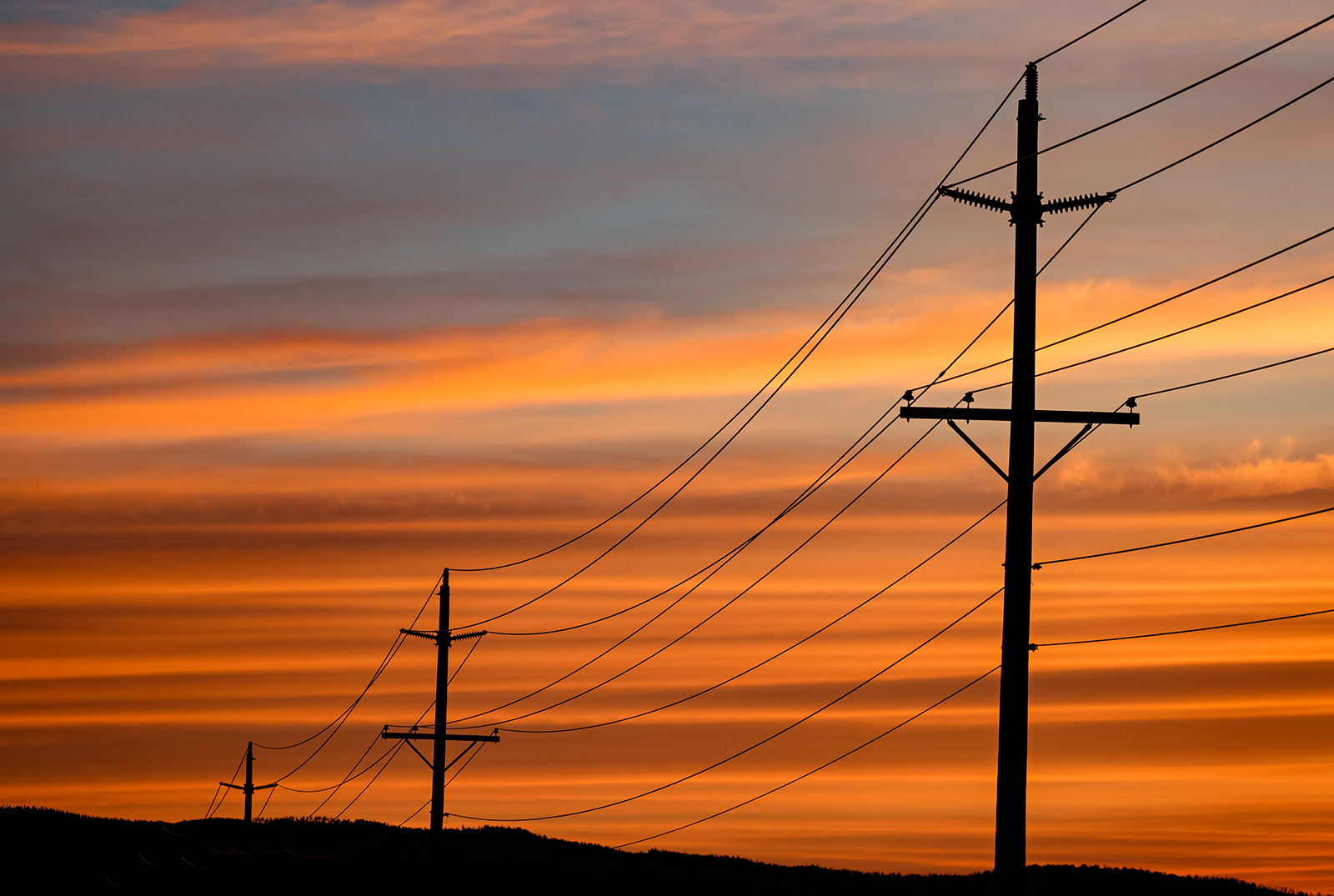Groups Push Back on Montana’s ‘Data Center Boom’ in Petition Before Utility Commission
What to know about an effort to protect NorthWestern Energy’s customers from higher bills amid surging electricity demand spurred by proposed data centers
By Amanda Eggert, Montana Free Press
A group of nonprofits is petitioning Montana’s utility board to tighten its oversight of NorthWestern Energy, arguing existing customers could foot the bill for the utility’s plan to provide data centers with electricity.
Nine groups working on energy, conservation, social justice and affordability issues on Tuesday asked the Public Service Commission to impose rules on NorthWestern so its 413,000-plus residential customers won’t be forced to shoulder the cost of new power plants and transmission lines to power data centers.
Here’s what we know about the data centers in question, how Montana law intersects with the debate and what the petitioners are asking the PSC to do in response.
HOW MUCH POWER DO THESE DATA CENTERS WANT NORTHWESTERN ENERGY TO SUPPLY?
NorthWestern Energy has signed letters of intent to supply power to three data centers, according to the complaint. If all goes according to the forecasted demand, by 2030, NorthWestern will supply 1,400 megawatts of power to these data centers to meet their needs. That’s roughly equivalent to the annual electricity needs of more than 1 million homes and more than double the 759 megawatts of power NorthWestern’s existing customers require on a typical day.
NorthWestern has signed agreements with Atlas Power, which seeks 75 megawatt of power for a facility in Butte starting in 2026 and and another 75 megawatts by 2030; Sabey Data Center Properties, which would initially require 50 megawatts to power a 600-acre campus planned for Butte and eventually expand its use to 250 megawatts; and Quantica Infrastructure, which wants to secure 175 megawatts for a project in Yellowstone County by late 2027 and increase its electrical footprint to 1,000 megawatts by 2030.
At least two of the aforementioned data centers are still very much in the planning stage. Yellowstone County’s planning department told MTFP last week that Quantica has not submitted a proposal for the project to the county. A land deal associated with the Sabey facility has not yet been finalized. Another project that’s drawn public interest, a 600-megawatt proposal that TAC Data Centers considered building in the Great Falls area, appears to have faltered.
According to the complaint, NorthWestern currently owns or has standing contracts for about 2,100 megawatts of power. It will acquire 592 additional megawatts of power from the Colstrip coal-fired power plant on Jan. 1, although it already has plans for some of that additional electricity.
WHY ARE THE PETITIONERS WORRIED ABOUT THESE DATA CENTERS?
The petitioners argue that NorthWestern’s plan to sign electricity service agreements before garnering regulatory approval is “unreasonable, insufficient and contrary to Montana law.”
More specifically, they argue that NorthWestern has “short circuited” the public’s right to know what the company is doing. The petitioners also say NorthWestern is inappropriately blocking oversight by, for example, moving to shield the letters of intent from public review. The PSC has the authority to ensure NorthWestern won’t shift new costs to its ratepayers, who are unable to shop around for power from other utilities, the petitioners contend.
The petitioners are Big Sky 55+, Butte Watchdogs for Social and Environmental Justice, Climate Smart Missoula, Golden Triangle Resource Council, Helena Interfaith Climate Advocates, Honor the Earth, Montana Environmental Information Center, Montana Public Interest Research Group and NW Energy Coalition.
Shannon James, Montana Environmental Information Center’s climate and campaigns organizer, said in a press release Tuesday that Montana should learn from other states’ missteps and avoid a hands-off approach to data center regulation.
“Communities across the country have suffered when large, noisy data centers move into their neighborhoods, raising their power bills and taking their water,” James said. “Montana has a chance to get ahead of the curve and protect existing utility customers from having to pay for expensive new fossil fuel power plants so NorthWestern Energy can cater to wealthy tech companies.”
WHAT DO THE PETITIONERS WANT THE PSC TO DO?
The petition asks the PSC to create a separate customer class for data centers, complete with a separate tariff, or rate structure, for the power they buy. In addition to establishing a unique formula for data centers’ power bills, a specialized tariff could stipulate that data centers give NorthWestern plenty of notice before changing their power usage. That could “provide more predictability” to the utility and shield its other customers from undue risk, the complaint reads.
If the PSC grants the request, the petitioners will have an opportunity to ask NorthWestern about its plans in a quasi-judicial public hearing. The groups will also have the opportunity to call experts to testify about potential impacts to NorthWestern’s customers if data centers tie into NorthWestern’s grid.
WHAT KINDS OF STATE LAWS ARE IN PLAY?
The petition references a Montana law outlining the process for large new customers to secure electrical service from a regulated utility. That law says that a new retail customer can’t purchase more than 5 megawatts of power from a public utility unless it first demonstrates to the PSC “that the provision of electricity supply service … will not adversely impact the public utility’s other customers over the long term.”
The petition also highlights sections of Montana law that establish the authority and duties of the PSC, which is made up of five elected officials. In keeping with a two-decade trend, the PSC is an all-Republican board.
The laws in question give the PSC the authority to “inquire into the management of the business of all public utilities,” and obtain “all necessary information to enable the commission to perform its duties.” It also authorizes the PSC to “inspect the books, accounts, papers, records and memoranda of any public utility and examine, under oath, any officer, agent, or employee of the public utility in relation to its business and affairs.”
WHAT DOES NORTHWESTERN SAY ABOUT THE DATA CENTER AGREEMENTS?
Jo Dee Black, a spokesperson for NorthWestern Energy, wrote in an email to MTFP on Tuesday that the company has committed to establishing a tariff specifically for large-load customers. She added that contracts for new data center customers will be submitted to the PSC “as they are executed.”
“New commercial customers with large energy loads, including data centers, will pay their fair share of integration and service costs,” Black wrote. “Infrastructure investments will ultimately mean a larger, more resilient energy system in Montana, however, new large load customers, such as data centers, will have to pay for their costs to integrate with the energy system.”
Black didn’t directly answer MTFP’s question regarding the number of agreements NorthWestern has signed with data centers, offering only that the company “has the three Letters of Intent” referenced in the petitioners’ complaint.
WHAT HAPPENS NOW?
If the PSC grants the’ request, parties to the proceeding — the petitioners, NorthWestern Energy and other organizations or individuals that the PSC clears for participation — will start building a case for commissioners to review. The PSC could issue an order based on the case, with or without first scheduling a hearing.
This story originally appeared in the Montana Free Press, which can be found online at montanafreepress.org.



